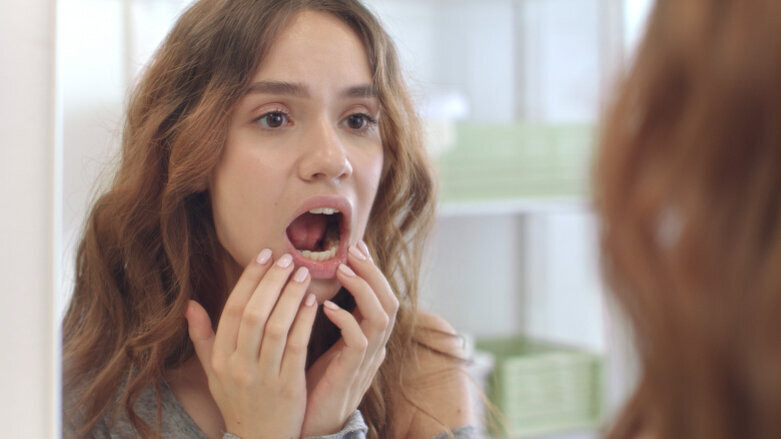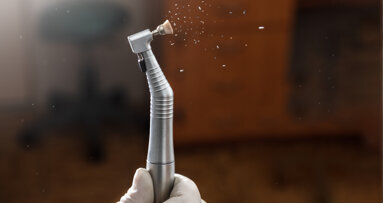LONDON, UK: The UK government has recently imposed a new system of targets that is planned to increase dental activity in the country and to help address the backlog of COVID-19 patients. However, many dental professionals fear that the targets are unattainable and that the only way to comply with the new conditions is by prioritising non-urgent care over urgent cases. Now, a new report has shown that sales of at-home dental care kits in the UK are increasing, and the British Dental Association (BDA) believes that this surge in sales is a consequence of the recent policies adopted by the government.
People are still having significant difficulty accessing dental care during the pandemic, and a report published by Boots, a UK health and beauty retailer and pharmacy chain, has found that, like during the first wave of the pandemic, patients are resorting to taking matters into their own hands. The report comes in light of the new National Health Service (NHS) activity targets, which require contractors to deliver 45% of their pre-pandemic dental activity from 1 January to 31 March 2021.
According to the report, at-home kits for dental fillings and crowns increased by 87% towards the end of 2020. The BDA commented on the findings and said that it associates the sharp rise in do-it-yourself (DIY) kits with the fact that the English government, unlike the Welsh government, has not yet invested in ventilation equipment in England. This, the association believes, would help improve patient throughput. Similarly, the BDA stated that the targets imposed on 1 January will not help adequately address the urgent backlog of cases.
“Sadly, this boom in ‘DIY dentistry’ directly reflects the choices made by government throughout this pandemic,” Dr Eddie Crouch, chair of the BDA’s board, said in a press release.
“In the first lockdown patients in pain were left with few options. Now ministers have imposed targets that are forcing dentists to prioritise volume over need,” he continued. “We need help to restore access for the patients that need us most.”
“Patients should never have to take matters into their own hands,” Crouch stated.
Prisoners in the UK attempt DIY dentistry
Access to dental care during the pandemic has also been restricted for prisoners in the UK. It has recently come to light that an inmate of Scotland’s largest prison, HMP Barlinnie, located in Glasgow, carried out a dental procedure on his fellow prisoner using razor blades and a part of a vape pen. The procedure involved slashing open an abscess and removing a tooth, using a shower stall as a makeshift dental surgery.
Commenting on the incident, a spokesperson for NHS Greater Glasgow and Clyde said in a press release: “Dental services at Barlinnie have been limited during the pandemic, as they have been across Scotland, due to the need to maintain physical distancing and enhanced infection control measures.” However, the spokesperson assured that prisoners at Barlinnie are given equal access to essential healthcare, despite existing social distancing restrictions: “Essential care continues to be provided for anyone who needs it.”
David McColl, chair of the BDA’s Scottish Dental Practice Committee, thinks that DIY dentistry belongs in the Victorian era and that ministers ought to find solutions that would put an end to DIY dentistry. He was recently quoted as saying: “This service faces huge backlogs and tight restrictions, but people in pain should never feel they are without options.”
Tags:



 Austria / Österreich
Austria / Österreich
 Bosnia and Herzegovina / Босна и Херцеговина
Bosnia and Herzegovina / Босна и Херцеговина
 Bulgaria / България
Bulgaria / България
 Croatia / Hrvatska
Croatia / Hrvatska
 Czech Republic & Slovakia / Česká republika & Slovensko
Czech Republic & Slovakia / Česká republika & Slovensko
 France / France
France / France
 Germany / Deutschland
Germany / Deutschland
 Greece / ΕΛΛΑΔΑ
Greece / ΕΛΛΑΔΑ
 Hungary / Hungary
Hungary / Hungary
 Italy / Italia
Italy / Italia
 Netherlands / Nederland
Netherlands / Nederland
 Nordic / Nordic
Nordic / Nordic
 Poland / Polska
Poland / Polska
 Portugal / Portugal
Portugal / Portugal
 Romania & Moldova / România & Moldova
Romania & Moldova / România & Moldova
 Slovenia / Slovenija
Slovenia / Slovenija
 Serbia & Montenegro / Србија и Црна Гора
Serbia & Montenegro / Србија и Црна Гора
 Spain / España
Spain / España
 Switzerland / Schweiz
Switzerland / Schweiz
 Turkey / Türkiye
Turkey / Türkiye
 UK & Ireland / UK & Ireland
UK & Ireland / UK & Ireland
 International / International
International / International
 Brazil / Brasil
Brazil / Brasil
 Canada / Canada
Canada / Canada
 Latin America / Latinoamérica
Latin America / Latinoamérica
 USA / USA
USA / USA
 China / 中国
China / 中国
 India / भारत गणराज्य
India / भारत गणराज्य
 Pakistan / Pākistān
Pakistan / Pākistān
 Vietnam / Việt Nam
Vietnam / Việt Nam
 ASEAN / ASEAN
ASEAN / ASEAN
 Israel / מְדִינַת יִשְׂרָאֵל
Israel / מְדִינַת יִשְׂרָאֵל
 Algeria, Morocco & Tunisia / الجزائر والمغرب وتونس
Algeria, Morocco & Tunisia / الجزائر والمغرب وتونس
 Middle East / Middle East
Middle East / Middle East




























To post a reply please login or register